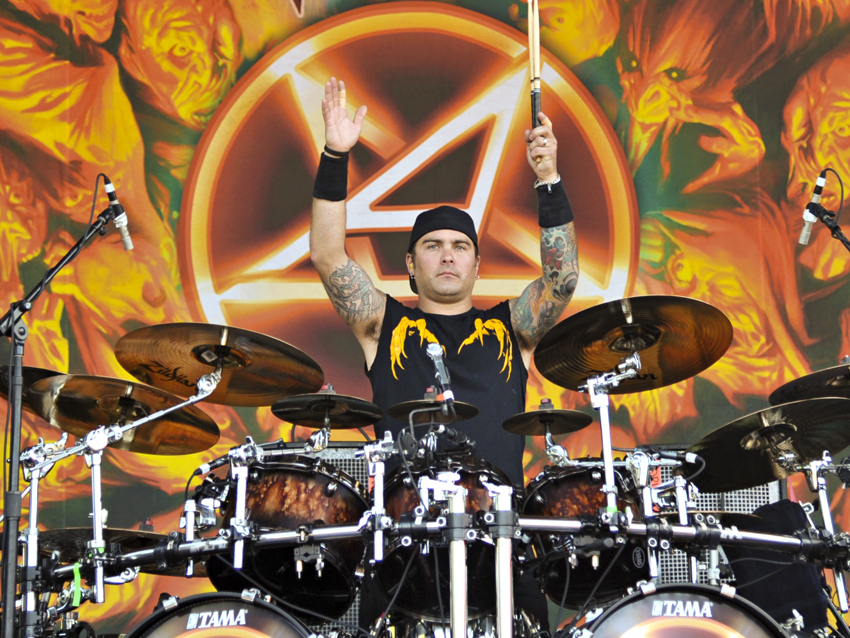
Jason Bittner picks 12 essential drum albums
With the release of Shadows Fall's 2002 album The Art Of Balance, Jason Bittner came to the attention of heavy metal drummers everywhere. His breathtaking chops, astonishing fluidity and unbridled creativity – along with his uncanny ability to turn on the double-bass flash without mauling whatever song he's playing – have made him one of the most emulated modern drummers of the past decade, earning the New York-born sticksman a Grammy nomination and numerous awards from the world's top drum magazines.
Growing up in the '70s and '80s, Bittner developed his style by playing along to videos on MTV and his favorite albums. "Playing to the TV was important because I didn't pay attention to genre," he says. "Whatever was on – ska, pop, metal, rock – I played it. So I got a pretty open mind from that. But drumming to albums was the main thing. By playing along to records, I really keyed into certain licks and grooves. It's also how I developed my ear."
Back in the pre-CD era, the then-teenaged Bittner would slow down vinyl albums in his attempts to divine the secrets of his favorite players. "I'd be like, 'Now, what the heck is Neil Peart doing here?' he says. "So I'd slow it down... 'Hmm, I think that's what he's doing.' I'd do this over and over. I might not have nailed the licks exactly, but I made up my own way of doing stuff – and that became part of my style.”
When not recording and touring with Shadows Fall or working on side projects such as Burning Human, Bittner, who at one time studied at the prestigious Berklee College Of Music, maintains a busy teaching schedule. He raves about his some of his students' almost preternatural abilities ("a lot of these kids are absolutely sick, way better than I was when I was their age"), but he has noticed a downside to what he calls today's "instant everything" culture. "You have kids who can learn tons of technique – fast chops, faster chops, jazz chops, gospel chops, 7/8 licks, pick your poison – and they get it all on YouTube," he says. "The danger is that they’re copying things so exactly that they’re not developing their ear and their imagination, like what I did when I was playing to albums."
He laughs, then adds, "I don't want to sound like an old man, but I think they could be missing out. Sit down with whole albums, not just the one track on iTunes. Some kids do it, but they might be the exception to the rule. I wish they all would do it."
They could start right here. On the following pages, Bittner runs down his picks for 12 Essential Drum Albums.
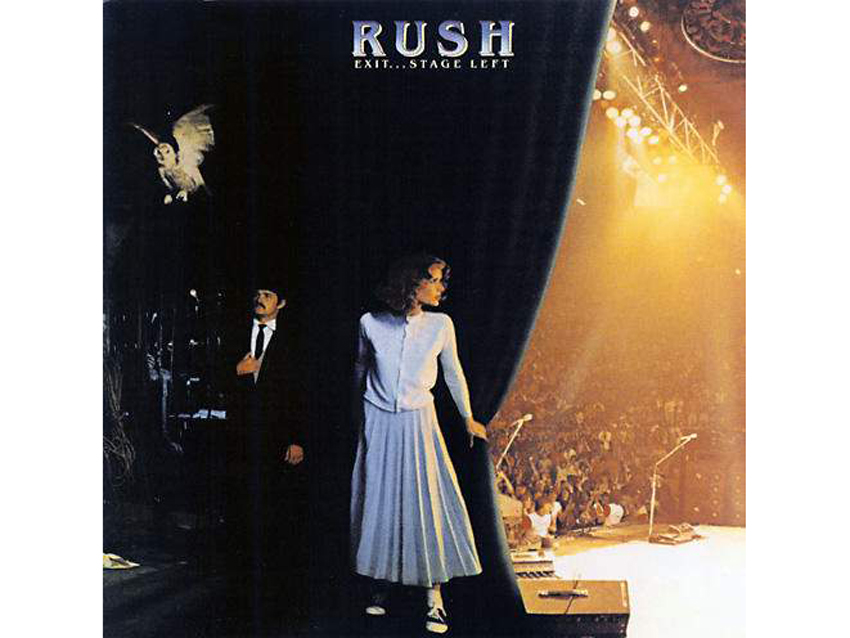
Rush - Exit… Stage Left (1981)
“The reason why I picked Exit… Stage Left is because it’s impossible to pick just one Rush studio album. Rush are my favorite band, and Neil Peart is my favorite drummer. I can’t possibly sum up the band in one record, but I can say that Exit… Stage Left epitomizes a period in time when Neil was most influential in my life.
“When I was a freshman and sophomore in high school, I would come home every day and play along to this record – at least to the best of my ability. I set up drums up so they were just like Neil’s, having everything as exact as I could – the same everything. It was that important to me.
“I could go on about how awesome the record is. The drum solo is still one of my favorites ever – ever. It’s definitely my favorite Neil Peart solo. The actual drum sound on the record is amazing, too, which is saying something because sometimes the sound on live records can be lacking.
“OK, if I had to pick a favorite studio album of Rush’s, it would be Moving Pictures. That’s a brilliant album all the way around. The Permanent Waves/Moving Pictures period is my favorite Rush time.”
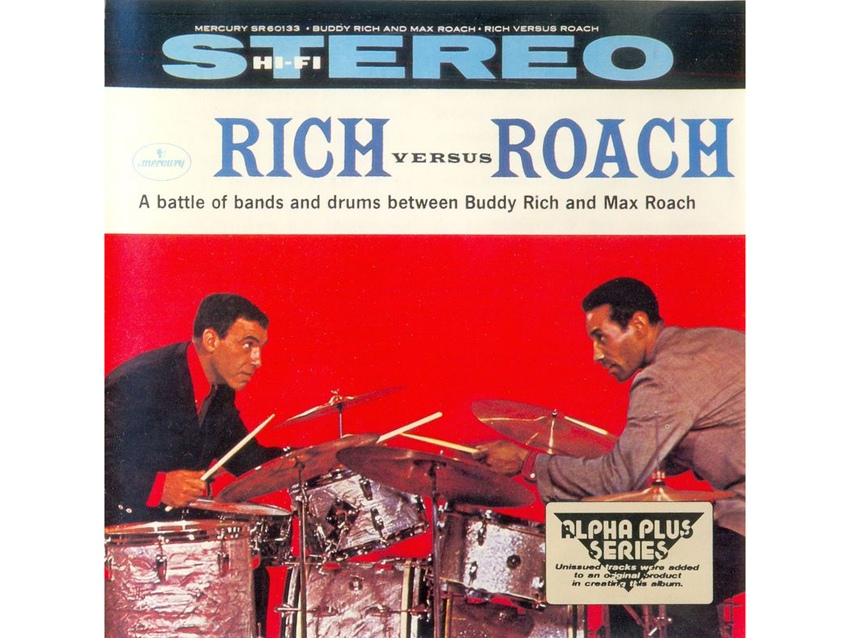
Buddy Rich/Max Roach - Rich Versus Roach (1959)
“You can’t have a ‘best drum albums’ list of any kind without having at least one Buddy Rich record. Can’t do it. Maybe I come from a different school, but I think Buddy Rich is the greatest drummer who ever walked the earth – and I don’t think there’s a lot of people who would disagree with me.
“There are so many great Buddy albums, but I like this one because a friend of mine turned me on to it years and years ago, and it was the first time I heard Max Roach. To have these two drum titans soloing back and forth was so cool, but what I really liked was hearing them play the same tunes. You’d get to hear each drummer interpret the same tune in his own way. That’s pretty cool.
“I think Buddy was being nice by not giving Max all that he could have; he kind of held back a bit. But even so, it’s a great example of camaraderie. And like I said, you’ve got Buddy Rich playing drums, so not a lot more needs to be said.”
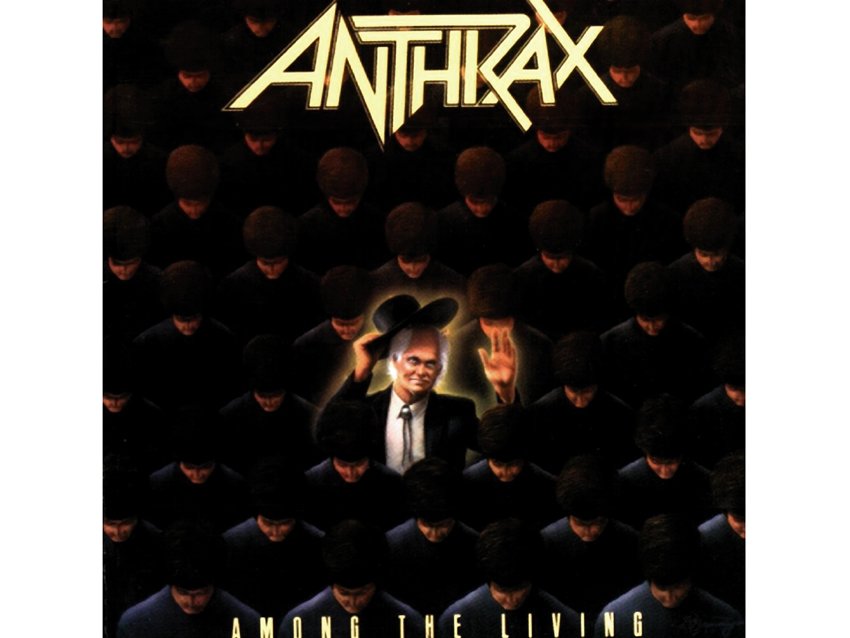
Anthrax - Among The Living (1987)
“I saw the band on this tour in the summer of ’87. Metal Church were opening, and to be honest, that’s who I was going to see – I was a little behind the times and didn’t know about the New York thrash kings yet. My friends were all like, ‘Oh, man, you gotta see the drummer in Anthrax. He’s amazing!’ And from the first song, Among The Living, I was blown away. I just thought, ‘All right, we’ve got somebody who’s faster than Dave Lombardo!’
“This is a very special record to me. What makes it doubly special is that I got to play these songs with Anthrax when I filled in for Charlie Benante. There was the first time I filled in for him back in 2006, and then I played with them again on the reunion tour that had the lineup for this album.
“It was a lifetime achievement for me to go out and play these songs with the Anthrax. For Charlie to have so much confidence in me, and for him to invite me back, it’s just the most incredible feeling. He’s my favorite thrash drummer and always will be.”
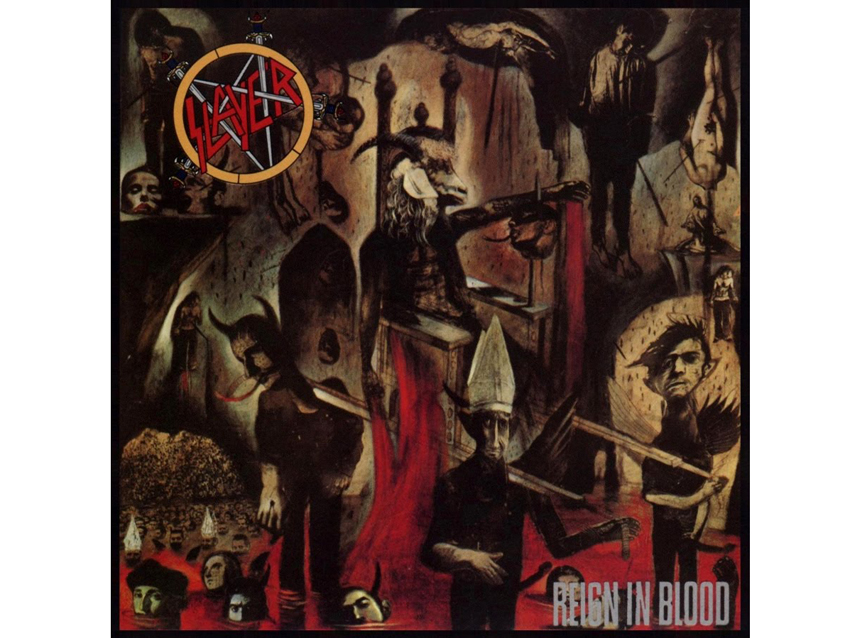
Slayer - Reign In Blood (1986)
“My transition in metal went from Judas Priest to Iron Maiden, and then in 1984 I heard about this band called Metal-lica. That’s what I thought they were called; I was like, ‘What is a metal-lica?’ And a friend said, ‘No, it’s Metallica, dude.’ [Laughs]
“After Metallica, I went to Slayer. Seasons In The Abyss still might be my favorite record of theirs, but Reign In Blood is the one where I went, ‘Oh, my God! What the hell did he just do with two bass drums right there?’ Hearing Dave Lombardo on Angel Of Death really put the speed bug in my ear.
“This is the album that got me into playing skank beats. I still have kids coming to me wanting to learn this stuff. A very influential record.”
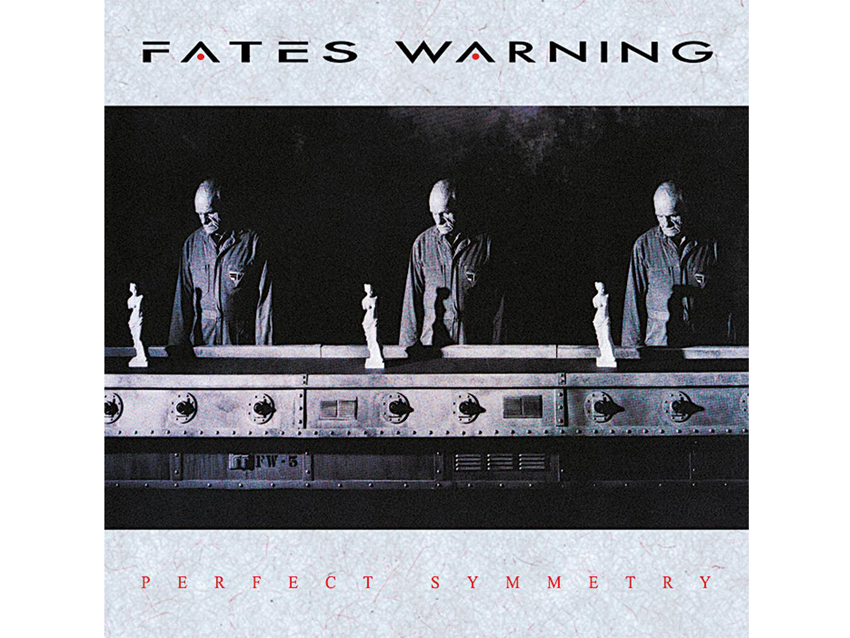
Fates Warning - Perfect Symmetry (1989)
“Mark Zonder is an amazing drummer. He basically took my Neil Peart fetish and brought it to a new level. He’s another insane, odd-time player who does lots of linear stuff. Very, very cool drumming.
“This is one of my favorite underground bands. I actually play in a band with one of the guitar players [Frank Aresti]. Perfect Symmetry is one of their pinnacle records. I’ve spent many hours in the practice room just trying to learn the first song, Part Of The Machine. Brilliant drumming.”
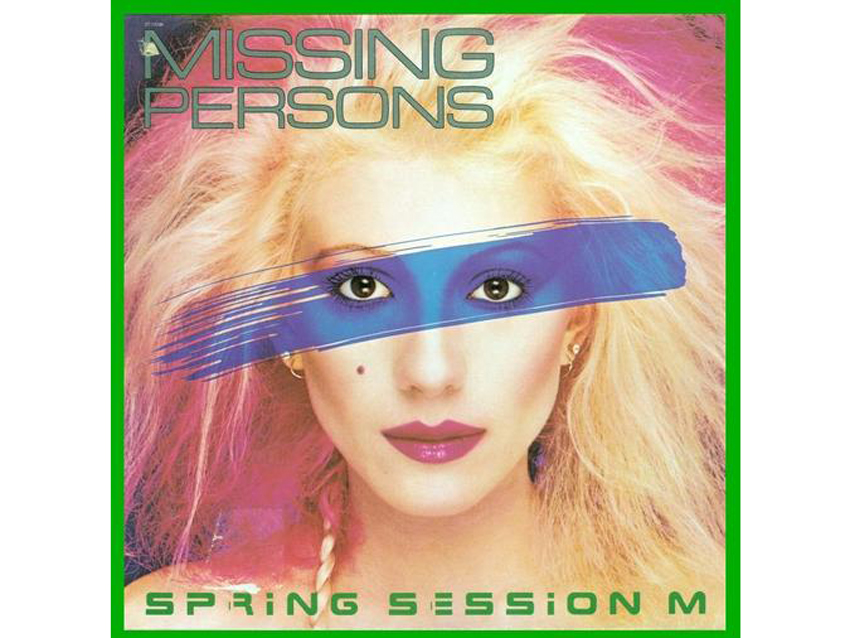
Missing Persons - Spring Session M (1982)
“People are probably thinking, ‘That’s the record you put down for Terry Bozzio?’ But this is the album that introduced me to Mr. Bozzio – I didn’t know about his work with Frank Zappa or UK or any of that stuff. I was 12 years old and clicking on MTV, and I saw the guy with the crazy hair, the roto toms and the wife with the see-through plastic bra. A 12-year-old boy was intrigued.
“When you listen to Spring Session M, you realize what a ridiculous amount of playing he does on a pop album. That’s really what this is – ‘80s synth pop – and he’s shredding all over it. Any kind of linear speed fills that I do, I stole that from Terry. It’s like what Mike Portnoy does, and he took it from Terry, too.
“The beat from U.S. Drag is still one of my favorite drum riffs ever. I have a DVD of the band playing the US Festival in 1983, and Terry is killin’ it! A monster player. People gotta check this record out.”
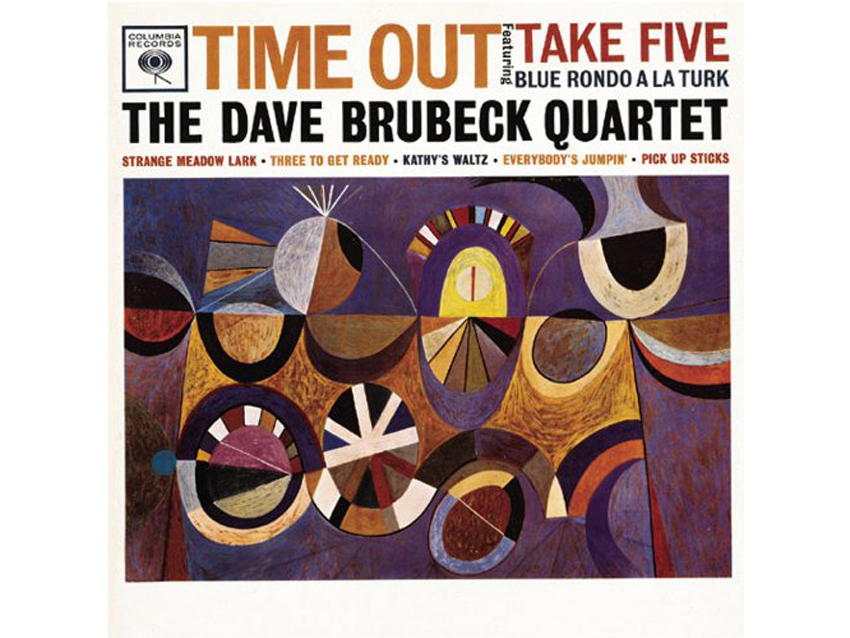
The Dave Brubeck Quartet - Time Out (1959)
“I have to include something that shows off my jazz influences. This is a great record, and Joe Morello is an amazing drummer. I’m still kicking myself in the ass that I never got a chance to take a lesson from him. I kept telling myself, ‘I’m gonna do it, I’m gonna do it.’ I saw his ads in Modern Drummer, but I just never got around to it.
“Obviously, Joe is famous for the solo on Take Five, but the reason why I picked this album is because it really gets into the progressive side of jazz for its time. There are songs in nine, songs in seven – it’s great for all of that. Blue Ronda a la Turk, like Take Five, is in odd time, and there are some very influential drum parts in it that I still teach to this day. I even used some parts of it in my drum solo in 2011, after Joe Morello passed away.”
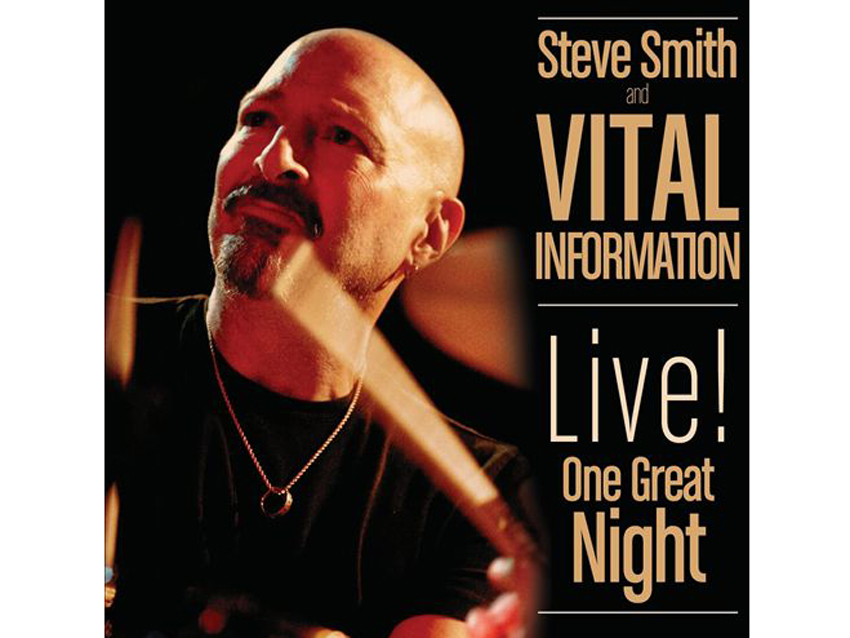
Steve Smith And Vital Information - Live! One Great Night (2012)
“I picked the anniversary album, but to me, any Vital Information album could do. Steve is one of the best drummers out there. Like a lot of people, I first knew of Steve from Journey – I even went with my mother to see the band play the Escape tour. I was a fan of his playing in Journey, but once he started Vital, even more so.
“Neil Peart is my favorite all-time drummer, but Steve Smith is my favorite modern-day drummer. He’s the one I’m inspired and influenced by the most. Every time I see him live, he kicks my ass; every time I sit down at a drum kit next to him, he kicks my ass. I’ve been lucky enough to take a couple of private lessons with him in New York, and I always get so much out of those times when we’re together.
“He’s a good friend and just astounds me to no end. He’s the perfect example of a drummer who never rests on his laurels and who always keeps learning more. He could stop playing today and still be better than most drummers. But no, he practices two hours a day. You gotta respect that.”
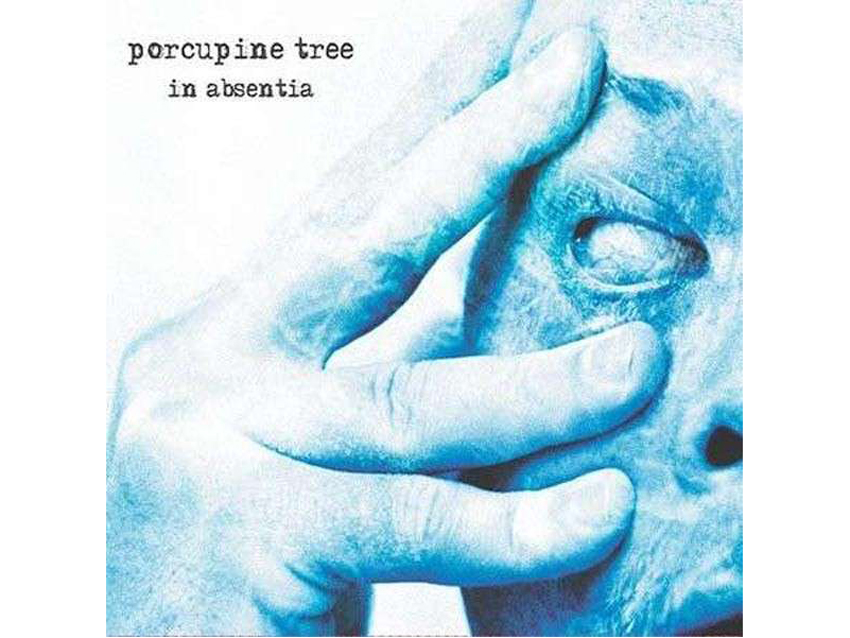
Porcupine Tree - In Absentia (2002)
“Gavin Harrison is another one of my favorite modern-day, odd-time guys. He’s a brilliant player, and he’s also just a wonderful human being. This is the first Porcupine Tree album I heard, and it really made an impact on me, especially the song The Sound Of Muzak – what a great tune.
“Gavin’s phrasing and his beat displacement, his ability to go extremely ‘out’ and still end up right where he should be – unbelievable. He’s been doing it for so long, so he can do it in his sleep, but trust me, it’s extremely difficult.
“I remember talking to him when we were at a charity event, and he was telling me about this duet he did with Simon Phillips. They were playing all this crazy stuff, odd times all over the place. During the rehearsal, Gavin was getting upset because he kept getting a little lost; meanwhile, Simon was playing everything perfectly, because, you know, he’s Simon. But during the live performance, Gavin did it perfectly and Simon messed it up.” [Laughs]
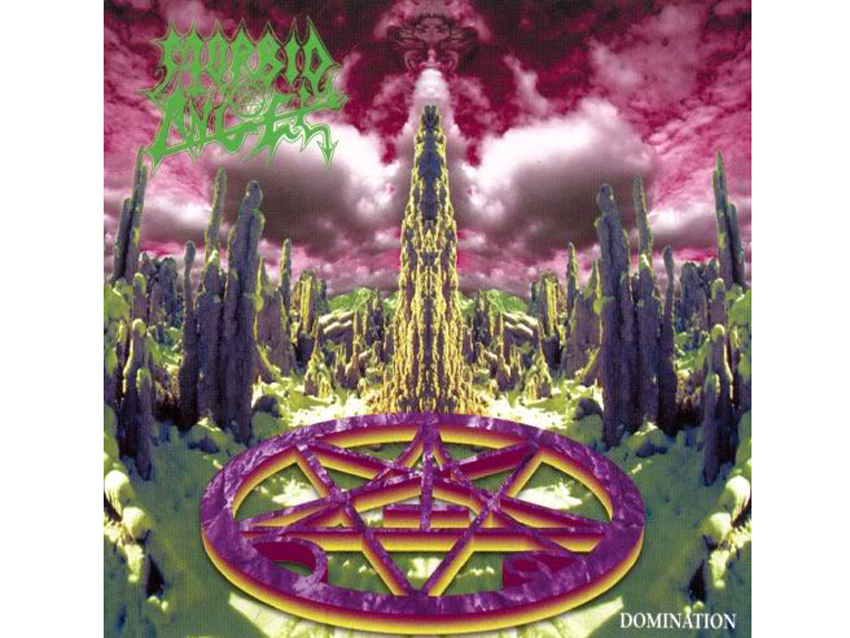
Morbid Angel - Domination (1995)
“I don’t play a lot of blast beats. I’m more of a thrash drummer than I am an extreme or a death metal drummer. But as far as that kind of style goes, the first guy who I tried to emulate was Pete Sandoval. Domination is my favorite album and song by Morbid Angel. It’s still an ass-kicker to play. For this kind of music, Pete’s the king.
“If you ask my friends who are drummers – Derek Roddy, George Kollias, lots of guys – they’ll tell you that Pete rules. Without him, they wouldn’t be doing what they’re doing, just like I wouldn’t be doing what I do without Charlie Benante and Dave Lombardo.”
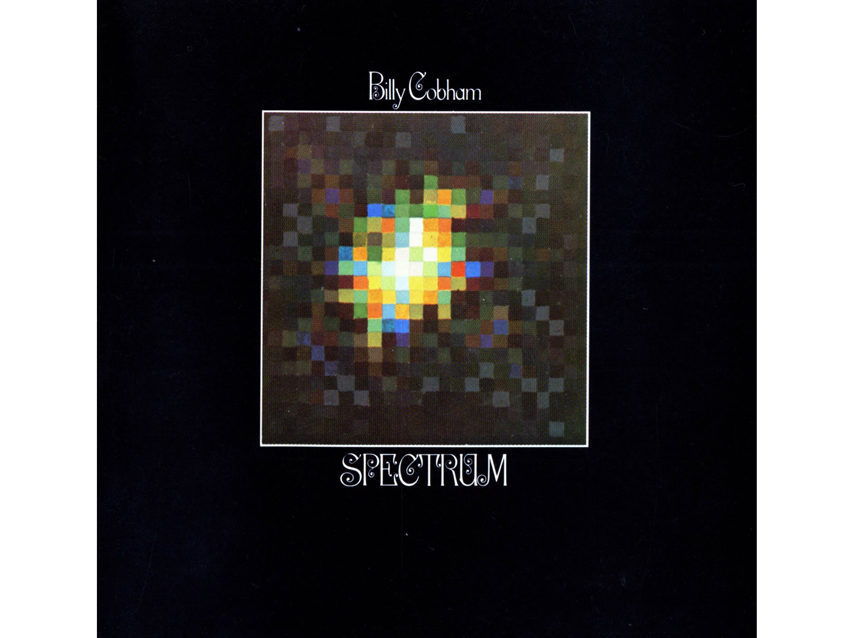
Billy Cobham - Spectrum (1973)
“I love Stratus. My God, what a great song and a great groove. Billy is a monster. Those fast freaking singles around the toms – nobody can do that stuff like he can. Fast, fluid, clean singles, that’s the thing. And he was also the first guy I heard play in 9/8, so that blew my mind.
“It’s hard to pick one Billy Cobham album. I love what he did with Mahavishnu. I could go with Inner Mounting Flame, but I didn’t hear that album until I was already into Cobham with Spectrum, so there you go. Actually, I got into Simon Phillips first, but then I read that Billy was the guy who influenced him. It goes in circles sometimes.”
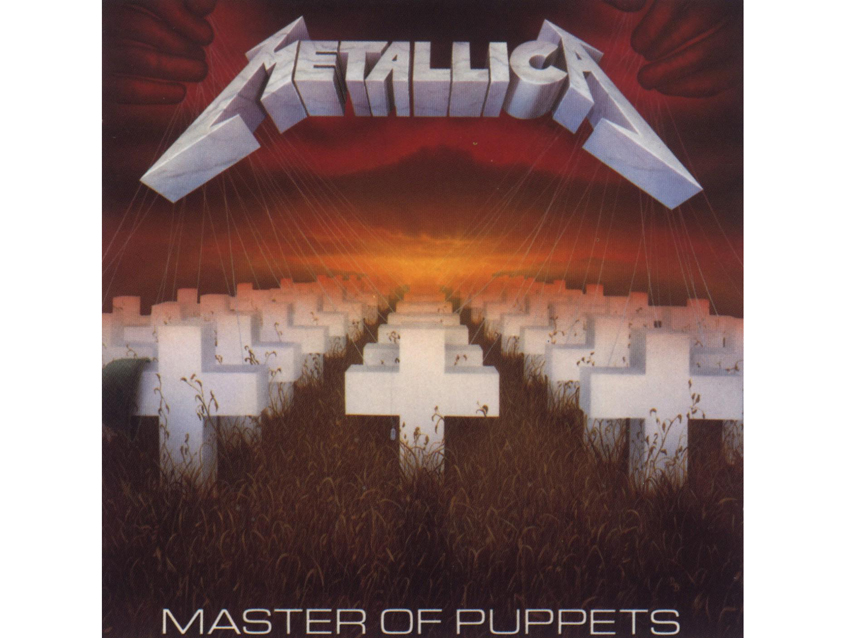
Metallica - Master of Puppets (1986)
“At the time, this represented the fastest double bass stuff that Lars Ulrich was doing. Damage, Inc., Battery – the assault in those songs is unbelievable. It’s just a great album from start to finish. The feelings in those songs, the way the record is put together – I love it. I’ve played so many of these tunes in various bands over the years.
“Even though Charlie Benante and Dave Lombardo loom larger in my life, Lars was first. I’ll always defend him and his playing. I was already into Metallica when this record came out, and I bought it the first day it was available. I was waiting for it.”
Joe is a freelance journalist who has, over the past few decades, interviewed hundreds of guitarists for Guitar World, Guitar Player, MusicRadar and Classic Rock. He is also a former editor of Guitar World, contributing writer for Guitar Aficionado and VP of A&R for Island Records. He’s an enthusiastic guitarist, but he’s nowhere near the likes of the people he interviews. Surprisingly, his skills are more suited to the drums. If you need a drummer for your Beatles tribute band, look him up.
"At first the tension was unbelievable. Johnny was really cold, Dee Dee was OK but Joey was a sweetheart": The story of the Ramones' recording of Baby I Love You
"Reggae is more freeform than the blues. But more important, reggae is for everyone": Bob Marley and the Wailers' Catch a Fire, track-by-track
"At first the tension was unbelievable. Johnny was really cold, Dee Dee was OK but Joey was a sweetheart": The story of the Ramones' recording of Baby I Love You
"Reggae is more freeform than the blues. But more important, reggae is for everyone": Bob Marley and the Wailers' Catch a Fire, track-by-track










